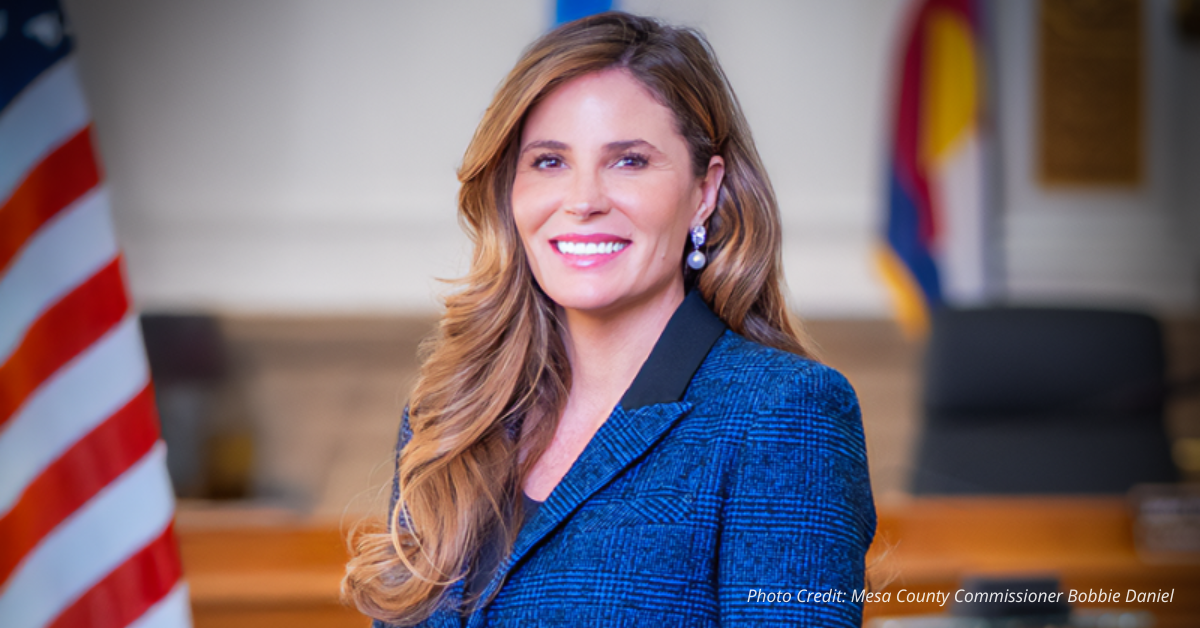Resolving family legal issues can be stressful and complicated. Emotions run high, and it can be difficult to see the matter clearly. You need objective legal counsel from an experienced family attorney. Call the Law Office of John Williams in Charlotte, NC. John Williams can assist you if you're filing for divorce. He also handles child custody and guardianship cases.
Arrange for a consultation with a divorce attorney in Charlotte, NC today.
MESA COUNTY


Colorado’s Budget Crisis Wasn’t an Accident, It Was a Choice!
By Bobbie Daniel
Colorado’s budget isn’t just strained, it’s revealing the true priorities of our state’s leadership.
While seniors and disabled veterans wait to see if Colorado will uphold a constitutionally guaranteed property tax exemption, Governor Polis was busy polling Coloradans about spending $28 million on a pedestrian bridge in downtown Denver. The result? Over 87,000 people participated in just five days, 93.9% voted “no” and only 3.8% said yes.
That kind of public input is rare in state spending these days. If more of our budget decisions had that level of transparency, we might not be staring at another billion-dollar deficit.
The crisis we’re in today wasn’t caused by bad luck or global economics. It was the result of deliberate choices.
During COVID, Colorado received nearly $7 billion in one-time relief through the American Rescue Plan Act (ARPA) and supplemental state allocations. These funds were intended to help stabilize the state temporarily.
But instead of using that money to repair, prepare, or prioritize, state leaders created new ongoing programs. According to a Colorado Sun investigation, many of those one-time dollars were committed to long-term obligations. Now the money is gone — but the programs remain — and taxpayers are left holding the bill.
As of January 2025, Colorado entered the legislative session with a $1.2 billion budget shortfall. As general fund revenues fall below projections, another billion-dollar gap is already emerging. A special session now looms.
Meanwhile, local governments are shouldering an estimated $360 million in annual unfunded mandates — costs pushed down from the state without funding. Even Governor Polis’s own budget director recently admitted: “We don’t have the money to pay our bills.”
Bad math and utopian dreams always sound good — until reality sets in. Failed policies eventually come home to roost, and you run out of other people’s money sooner or later.
Nowhere is this fiscal imbalance more evident than in health care.
Medicaid is not solely a federal program. It’s a state-federal partnership, and each state determines how expansive its version will be. Colorado has chosen one of the most ample offerings — expanding optional eligibility and benefits and launching coverage programs for non-Americans, often using temporary federal funds.
In 2022, Colorado spent over $13 billion on Medicaid (including federal and state dollars), making up a significant portion of the overall state budget. Even more alarming: just 5% of enrollees account for nearly 40% of total costs, according to national Medicaid data. That’s a dangerous imbalance in a program designed to be a safety net.
Instead of adjusting, state lawmakers doubled down.
House Bill 22-1289 created the Cover All Coloradans program to provide coverage to non-Americans. It was projected to cost $34 million per year. However, costs ballooned to more than six times the original budget within a year, according to The Colorado Sun.
Similarly, the OmniSalud program — offering heavily subsidized private insurance for non-citizens — has seen enrollment surge more than 350% beyond projections.
In addition, Emergency Medicaid Services’ rising costs cover emergency care regardless of citizenship. These programs were launched or expanded during COVID using a temporary 6.2 percentage point increase in the federal match rate, which is now being phased out.
Beginning December 31, 2026, states must resume redetermining Medicaid eligibility every six months, up from once a year. By January 1, 2027, federal policy will require able-bodied adults aged 19 to 64 to work, train, or volunteer 80 hours per month to maintain coverage unless states opt out.
These reforms aren’t a surprise. Most Coloradans assumed pandemic-era expansions would wind down. Working families saw it coming—everyone, except the elite political class running Colorado.
So here we are again, facing billions in red ink. The proposals coming out of the Capitol are sadly familiar: cutting property tax relief for seniors and disabled veterans, raiding the Education Fund, piling on more unfunded mandates to local governments, and clawing back TABOR refunds. Some lawmakers even suggest taxpayers are the problem, as if we’re not paying enough to sustain their unsustainable programs.
Meanwhile, Colorado’s private health insurance market is collapsing. Premiums are among the highest in the nation—deductibles routinely top $5,000 per family. And in many rural areas — including large parts of Western Colorado — residents are lucky to have even one insurance option on the exchange.
The result? Colorado families are caught between two broken systems: unaffordable private insurance and an overstretched public safety net. The middle class is being priced out from both ends.
Economic reality has hit Colorado hard: when the government takes over services that the private sector can deliver better, costs go up, and quality goes down.
Every new mandate, expanded benefit, and added regulation chips away at competition, stifles innovation, and drives up costs while reducing access and choice.
But there’s still time to choose a better path. We can give individuals the same tax advantages as employers when buying insurance, expand and modernize Health Savings Accounts, allow Coloradans to purchase insurance across state lines or through associations, and promote Direct Primary Care, where patients pay doctors directly, restoring value and eliminating bureaucracy.
Colorado has a choice to make. We can either keep expanding programs we can’t afford or use state-level flexibility to innovate — to find smarter, more efficient ways to serve the people who truly need care. We must also hold fiscal note estimators accountable.
A 600% cost overrun isn’t just a blown projection — it’s a failure of basic stewardship. If this happened in the private sector, someone would be out of a job.
Coloradans are fiscally conservative at heart. They support TABOR, balanced budgets, lower taxes, and limited government. But we need to elect statewide leaders who actually govern that way — who believe in economic common sense over political convenience.
Because the truth is: Colorado’s budget crisis wasn’t an accident. It was a choice.
Colorado’s statewide offices will be on the ballot in 2026. Governor Polis is term-limited, and while he may be looking to the national stage, Colorado voters can also look forward. The Attorney General, Secretary of State, and State Treasurer are also term-limited, creating a rare opportunity for real change.
We may not be able to flip the legislature overnight, but the Governor’s office is the keystone. It’s our chance to get back to the basics, restore some balance, and bring back the kind of leadership that puts working families, small businesses, and common sense at the forefront.
If we want to get Colorado off this unsustainable path and back to the fiscally responsible roots that made our state strong, 2026 isn’t just another election — it’s the turning point and can’t come fast enough.
Bobbie Daniel is the Mesa County Commissioner for District 2 in Western Colorado. Raised in Palisade and born to a hairdresser and coal miner, she brings a working-class perspective shaped by small business ownership, public service through AmeriCorps and decades of community involvement. Daniel has served on numerous local boards and advocates for local solutions, individual liberties and policies that strengthen families and small businesses. She lives in Grand Junction with her husband and their four children.

